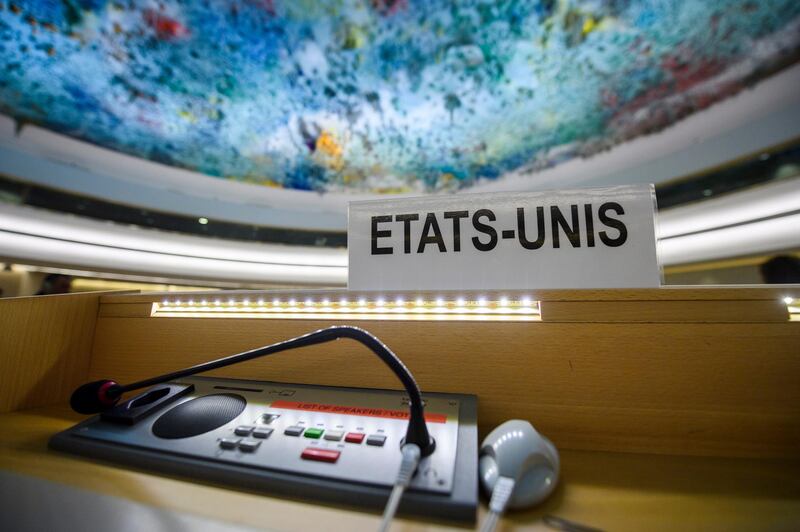The US withdrawal from the United Nations Human Rights Council could end up benefiting American rivals including China, experts have warned.
After months of threatening to leave the United Nations Human Rights Council, US ambassador to the UN Nikki Haley blasted the 47-member body as she broke ties on Tuesday. “Human rights abusers continue to serve on, and be elected to, the council,” she said. “It continues politicising scapegoating of countries with positive human rights records in an attempt to distract from the abusers in its ranks.”
She called the UNHRC “a cesspool of political bias” but with mainly anti-American and anti-Israeli leanings that drove Washington out.
The US withdrawal from the UNHRC did not surprise experts, who saw it as another rejectionist act by the presidency of Donald Trump against the United Nations. But while the council’s record is controversial and known for meek performance on human rights since it was established in 2006, the US exit could backfire by helping the same adversaries that Ms Haley criticised.
____________
Read more:
Trump's human rights council pullout imperils the vulnerable and persecuted
United States quits UN Human Rights Council
____________
"This is ultimately a win for China and other countries that would like to roll back the UN's human rights work" Richard Gowan, a UN expert at the London-based European Council on Foreign Relations told The National. He predicted that Beijing will now "corral developing countries in Geneva to table resolutions undermining Western human rights positions."
"The US was always going to quit sooner or later,” he said but the move now is “a let-down to US allies like Britain and the Netherlands which worked very hard to promote reforms that would keep the Americans in the Council.”
With US gone, Mr Gowan argued that UNHRC now will probably focus on Israeli actions even more than before. While “pulling out may be a short-term feel-good gesture for the Trump administration, it weakens its overall position at the UN," he added.
The move is not unprecedented. The George W Bush administration refused to join the council upon its creation in 2006, and it wasn’t until 2009 under Barack Obama that Washington joined.
Robert Satloff, the executive director of The Washington Institute for Near East Policy, framed President Trump's decision as a response to the "absurdity” of the council’s record.
"Under normal circumstances, the United States should always be willing to roll up its sleeves and work from within to seek reform of international agencies. But the Human Rights Council has truly excelled in proving itself impervious to the most reasonable, rational and modest changes to remove structural bias and promote human rights more fairly and equitably around the world," Mr Satloff told The National.
“Like the Bush Administration’s before, it is an understandable response to that absurdity,” he said, adding that he hoped “this move is complemented by a more aggressive US effort in other arena to advance human rights and defend the vulnerable, including those seeking asylum from tyranny, genocide and other horrors.”
The move came amid speculation that the US is preparing to announce a peace plan to jump start Israeli-Palestinian negotiations. Mr Trump’s adviser and son-in-law Jared Kushner, along with his peace envoy Jason Greenblatt, just concluded a trip to Jordan where they discussed these efforts. Showing strong backing for Israel has been a hallmark for the Trump team.
But Mr Satloff said that “while the move reinforces the idea that the Trump administration is instinctively supportive of Israel, I don’t think the US withdrawal will have much impact, either positive or negative, on the traditional Mideast Peace diplomacy.”






